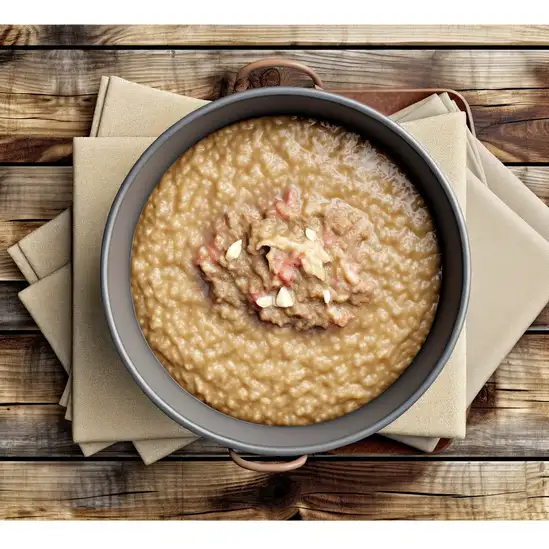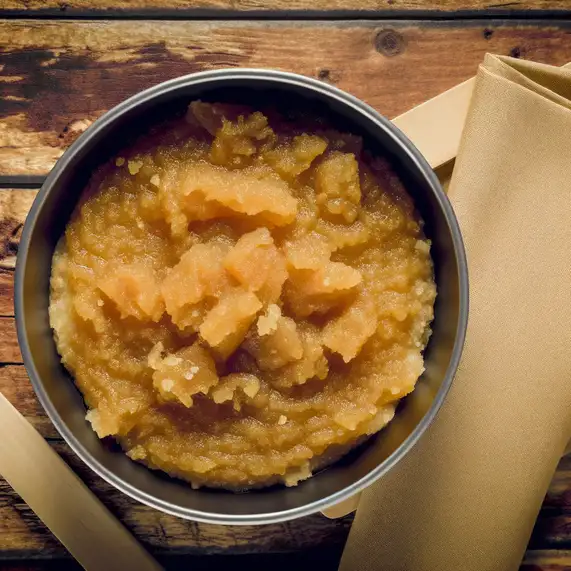



If you ever find yourself craving a place where history hums softly beneath your feet and the air carries the scent of frankincense and spices,Nizwá in Oman is where you should go. The moment you step into its bustling souq,you’re wrapped in a tapestry of vibrant colors—piles of fresh dates,handwoven baskets,and gleaming silver jewelry catching the sunlight. The chatter of locals bargaining,the clink of metalwork,and the occasional call to prayer create a rhythm that feels both ancient and alive. Nizwá’s character is deeply rooted in its past,with the imposing Nizwá Fort standing guard over the city. Walking through its thick,ochre walls,you can almost hear the whispers of old tales and the footsteps of warriors. Outside,the palm groves and rugged mountains frame the town,offering a peaceful contrast to the lively market scenes. The air is dry but carries a coolness in the evenings that invites you to linger over a cup of sweet Omani coffee,rich with cardamom. What makes Nizwá truly special is how it balances tradition and warmth. The people here are incredibly welcoming,eager to share stories about their crafts or the history of the falaj irrigation systems that have sustained this oasis for centuries. It’s a place where you don’t just visit; you feel connected—to the land,the culture,and the simple,enduring rhythms of life.
The information on this page is currently being reviewed by Tripkliq and should be used as a guide only
Eng word: Hello
Eng pronunciation: Marhaban
Local language: مرحبا
Eng word: Goodbye
Eng pronunciation: Wada'an
Local language: وداعا
Eng word: Thank you
Eng pronunciation: Shukran
Local language: شكرا
Eng word: How much
Eng pronunciation: Kam al-si'r
Local language: كم السعر
Eng word: Toilet
Eng pronunciation: Mirhad
Local language: مرحاض
Eng word: Help me
Eng pronunciation: Sa'idni
Local language: ساعدني
Eng word: Yes
Eng pronunciation: Na'am
Local language: نعم
Eng word: No
Eng pronunciation: La
Local language: لا
Eng word: Excuse me
Eng pronunciation: Afwan
Local language: عفوا
Nizwa served as the capital of Oman during the early Islamic era, making it one of the most historically significant cities in the country. It was a center of trade, education, and religion.
Built in the 17th century by Imam Sultan bin Saif Al Yarubi, Nizwa Fort is one of the most iconic landmarks in Oman. Its massive circular tower and strategic design reflect the city's historical importance in defense and governance.
Nizwa has long been known as the 'Pearl of Islam' due to its role as a hub for Islamic learning and scholarship. The city is home to many mosques and educational institutions that have preserved Islamic teachings for centuries.
The Nizwa Souq is one of the oldest markets in Oman, offering a glimpse into the city's vibrant trade history. It is famous for its traditional handicrafts, silver jewelry, and Omani daggers (khanjars).
The Falaj Daris irrigation system, located in Nizwa, is the largest falaj in Oman and a UNESCO World Heritage Site. It showcases the ingenuity of ancient Omani water management techniques.
Nizwa flourished under the Yaruba dynasty (1624–1744), which established the city as a political and cultural center. The dynasty's contributions to architecture and governance are still evident today.
Historically, Nizwa was a key trading hub due to its location at the crossroads of important caravan routes. It connected the interior of Oman with coastal regions, facilitating the exchange of goods and culture.
The Friday Mosque in Nizwa is one of the oldest mosques in Oman, dating back to the 7th century. It has been a center for worship and community gatherings for over a millennium.
Nizwa played a pivotal role in the unification of Oman under the leadership of Imam Ahmed bin Said Al Busaidi in the 18th century, marking the beginning of the Al Busaidi dynasty.
In Nizwá, the most common Power Adaptor is Type G.


A dish made from wheat and meat, cooked until it reaches a porridge-like consistency, often enjoyed during special occasions and Ramadan.

A sweet, sticky dessert made from sugar, rosewater, and various spices, often served with coffee as a traditional Omani treat.

A spiced rice dish often made with chicken, lamb, or fish, flavored with a blend of spices and served with a side of salad or yogurt.

A dish made with grilled or boiled fish, served with rice and a sauce made from lemon and spices, often accompanied by a side of vegetables.

Traditional Omani bread, usually served warm, that accompanies most meals and is used to scoop up food.

A traditional Omani dish made of marinated lamb or goat, wrapped in banana leaves, and slow-cooked in an underground sand oven for up to 48 hours.
If you ever find yourself wandering through Muscat,you’ll immediately notice a calm,almost meditative rhythm to the city. It’s not the usual hustle of a big metropolis; instead,there’s a gentle blend of tradition and modern life that feels both grounding and inviting. The air carries a subtle mix of sea salt from the Gulf of Oman and the warm,spicy aroma of frankincense wafting from local markets. Walking along the Corniche,you’ll catch the glint of sunlight bouncing off whitewashed buildings and the soft murmur of fishing boats bobbing in the harbor.
Muscat’s charm lies in its contrasts—ancient forts stand proudly against a backdrop of rugged mountains,while sleek cafes and art galleries hint at a quietly evolving culture. The city’s soul is deeply tied to its people,who greet you with genuine warmth and a readiness to share stories over a cup of sweet,cardamom-spiced coffee. Exploring the winding alleys of Mutrah Souq,you’ll hear the lively chatter of vendors and the clinking of silver jewelry,while your fingers brush against handwoven textiles and fragrant spices.
What really stays with you is the sense of place—Muscat feels like a crossroads where the past and present meet in harmony. Whether you’re savoring fresh seafood by the water or watching the sun dip behind the mountains,there’s a peacefulness here that invites you to slow down,breathe deeply,and soak in the beauty of a city that’s quietly proud of its heritage and hopeful for its future.
Imagine stepping into a place where the future meets tradition in the most dazzling way—that’s Dubai for you. The moment you arrive,there’s this electric buzz in the air,a mix of ambition and warmth that’s impossible to ignore. Skyscrapers like the Burj Khalifa stretch into the sky,shimmering glass and steel reflecting the golden desert sun,while just a few streets away,you can wander through bustling souks filled with the scent of exotic spices and the chatter of friendly vendors. It’s a city that never feels cold or impersonal,even with its towering modernity.
Walking along the Marina at sunset,you’ll hear the gentle lapping of water against sleek yachts,the distant hum of conversations in dozens of languages,and the occasional call to prayer weaving through the air,grounding you in the city’s rich cultural tapestry. The food scene is a vibrant adventure—imagine tasting freshly grilled shawarma,sweet dates,and rich Arabic coffee,each bite telling a story of the region’s heritage and its global influences.
What really makes Dubai stand out is its fearless spirit. It’s a place where desert dunes meet luxury shopping,where traditional falconry coexists with indoor ski slopes,and where every corner invites you to explore something unexpected. Whether you’re marveling at art installations in Alserkal Avenue or catching the cool breeze on a dhow cruise,Dubai feels alive,inviting you to be part of its ever-evolving story.
Imagine stepping onto Abu Dhabi Island and instantly feeling a blend of modern energy and timeless tradition wrapping around you like a warm breeze. The city pulses with a unique rhythm—where gleaming skyscrapers meet the gentle lapping of turquoise waters,and the scent of frankincense mingles with the salty sea air. Walking along the Corniche,you’ll catch the laughter of families,the hum of cyclists,and the distant call to prayer,all weaving together into a vibrant tapestry of daily life.
What really sets Abu Dhabi apart is its graceful balance between the old and the new. The Internal Islands City,with its sleek marinas and chic cafes,invites you to savor fresh seafood while watching luxury yachts drift by. Yet,just a short drive away,you can explore the grand Sheikh Zayed Mosque,where intricate mosaics and towering domes tell stories of culture and faith. The city’s character shines brightest in its people—welcoming,proud,and eager to share their heritage.
Taste the rich spices in a traditional Emirati dish or sip on sweet karak tea as the sun dips below the horizon,painting the sky in shades of pink and gold. Abu Dhabi isn’t just a place to see; it’s a place to feel—where every corner offers a new sensory delight and every moment invites you to slow down and soak it all in. Trust me,once you experience its warmth and wonder,you’ll be planning your next visit before you even leave.
Doha feels like stepping into a vibrant blend of tradition and modernity,where the desert meets the sea in the most unexpected ways. Imagine walking along the Corniche at sunset,the warm breeze carrying the faint scent of spices from nearby souks,while sleek skyscrapers shimmer against the fading light. The city hums with a quiet energy—call to prayers echo softly,mingling with the chatter of locals and the distant hum of luxury cars. It’s a place where the past and future coexist,inviting you to explore both ancient culture and cutting-edge design.
Wandering through the narrow alleys of Souq Waqif,you’ll be enveloped by the rich aroma of frankincense and cardamom,while colorful textiles and handcrafted wares spill from every stall. The lively banter of shopkeepers and the clinking of tea glasses create a warm,welcoming atmosphere that feels deeply personal. Then,just a short drive away,the Museum of Islamic Art stands like a jewel on the waterfront,its architecture as breathtaking as the treasures inside.
What really makes Doha special is its pace—there’s a calm confidence here,a city that’s growing fast but still holds onto its roots. Whether you’re savoring fresh seafood by the water,feeling the soft sand beneath your feet on a desert safari,or simply watching the city lights dance on the bay,Doha invites you to slow down and soak it all in. It’s a place that surprises you,not with loud fanfare,but with quiet moments that linger long after you’ve left.
If you ever find yourself in Male,Maldives,get ready to be swept up by a vibrant little city that pulses with island life and unexpected energy. It’s not your typical tropical getaway where everything feels distant and quiet—instead,Male buzzes with a lively rhythm,where the scent of salty ocean air mingles with the aroma of fresh spices from bustling street markets. Walking through its narrow streets,you’ll hear the chatter of locals,the hum of motorbikes,and the occasional call to prayer echoing from the mosques,all blending into a soundtrack that feels both ancient and alive.
What’s really captivating about Male is how it balances tradition and modernity. You’ll see colorful buildings painted in bright pastels,fishing boats bobbing in the harbor,and sleek cafes serving up rich Maldivian coffee alongside international flavors. The city’s compact size means you can explore on foot,discovering little corners where vendors sell fragrant tropical fruits or where fishermen unload their fresh catch of the day. The warmth of the people here is palpable—they’re proud of their culture and eager to share stories if you stop to chat.
And don’t miss the chance to taste the local cuisine—imagine biting into a spicy mas huni breakfast,where shredded tuna,coconut,and chili dance on your tongue,or savoring grilled seafood fresh from the Indian Ocean. Male isn’t just a gateway to the Maldives’ famous resorts; it’s a lively,sensory-rich place that invites you to slow down,soak in the island spirit,and feel connected to a culture that’s as deep as the surrounding blue waters.
If you ever find yourself craving a place where the air feels softer and the world slows down just enough to breathe,Salalah in Oman is that kind of magic. Imagine stepping into a landscape where lush greenery suddenly bursts from the desert,thanks to the monsoon season that turns the region into a vibrant oasis. The scent of frankincense trees mingles with the salty breeze from the Arabian Sea,creating an aroma that’s both ancient and refreshing. Walking through the bustling souks,you’ll hear the lively chatter of locals bargaining over spices,fresh dates,and handmade crafts,all while the call to prayer gently echoes in the background.
Salalah’s charm lies in its blend of natural beauty and rich culture. The city wears its history proudly,from the ruins of ancient frankincense trade routes to the welcoming smiles of its people,who are eager to share stories over a cup of sweet,cardamom-spiced coffee. The beaches here aren’t just places to relax—they’re where you can watch fishermen haul in their catch or spot turtles nesting under the moonlight. And if you time your visit during the Khareef season,the landscape transforms into a surreal,misty wonderland,with waterfalls cascading down emerald hills.
What really stays with you about Salalah is its peaceful rhythm and genuine warmth. It’s a place where you can lose yourself in nature’s quiet spectacle and find unexpected connections with a culture that feels both timeless and inviting. Trust me,once you’ve wandered its fragrant streets and soaked in its serene beauty,you’ll carry a piece of Salalah with you long after you leave.
Some individuals may offer to exchange currency at unfavorable rates or provide counterfeit bills during the transaction.
Vendors may sell fake or low-quality items claiming they are authentic Omani antiques or artifacts, taking advantage of tourists' lack of knowledge.
Some individuals may pose as official tour guides and offer their services to tourists, charging high fees for subpar or unnecessary tours.
Tourists may encounter vendors who inflate prices for local handicrafts, especially in the souq, targeting those unfamiliar with the actual value of items.
Unmetered taxis or drivers may charge excessive fares to tourists, especially for short distances or trips to popular attractions.
Tourists may be approached by unlicensed operators offering adventure tours, such as hiking or exploring caves, which may lack proper safety measures.
The possession, use, or trafficking of drugs is strictly prohibited in Oman, including Nizwa. The country enforces a zero-tolerance policy, and violations can result in severe penalties, including long prison sentences or even the death penalty for trafficking. Tourists should avoid carrying any form of illegal drugs, including small quantities for personal use.
Smoking in Nizwa, Oman, is generally allowed in designated areas, but it is prohibited in public spaces such as government buildings, hospitals, schools, and public transportation. Tourists should be mindful of local customs and avoid smoking in crowded or family-oriented areas. Smoking in non-designated areas may result in fines.
Vaping is treated similarly to smoking in Oman. It is allowed in designated areas but prohibited in public spaces. Importing or selling e-cigarettes and vaping products is regulated, and travelers should ensure they comply with customs regulations when bringing such items into the country.
What are other people saying about Nizwá?
Recent Social posts about Nizwá
There is nothing to show you for now.